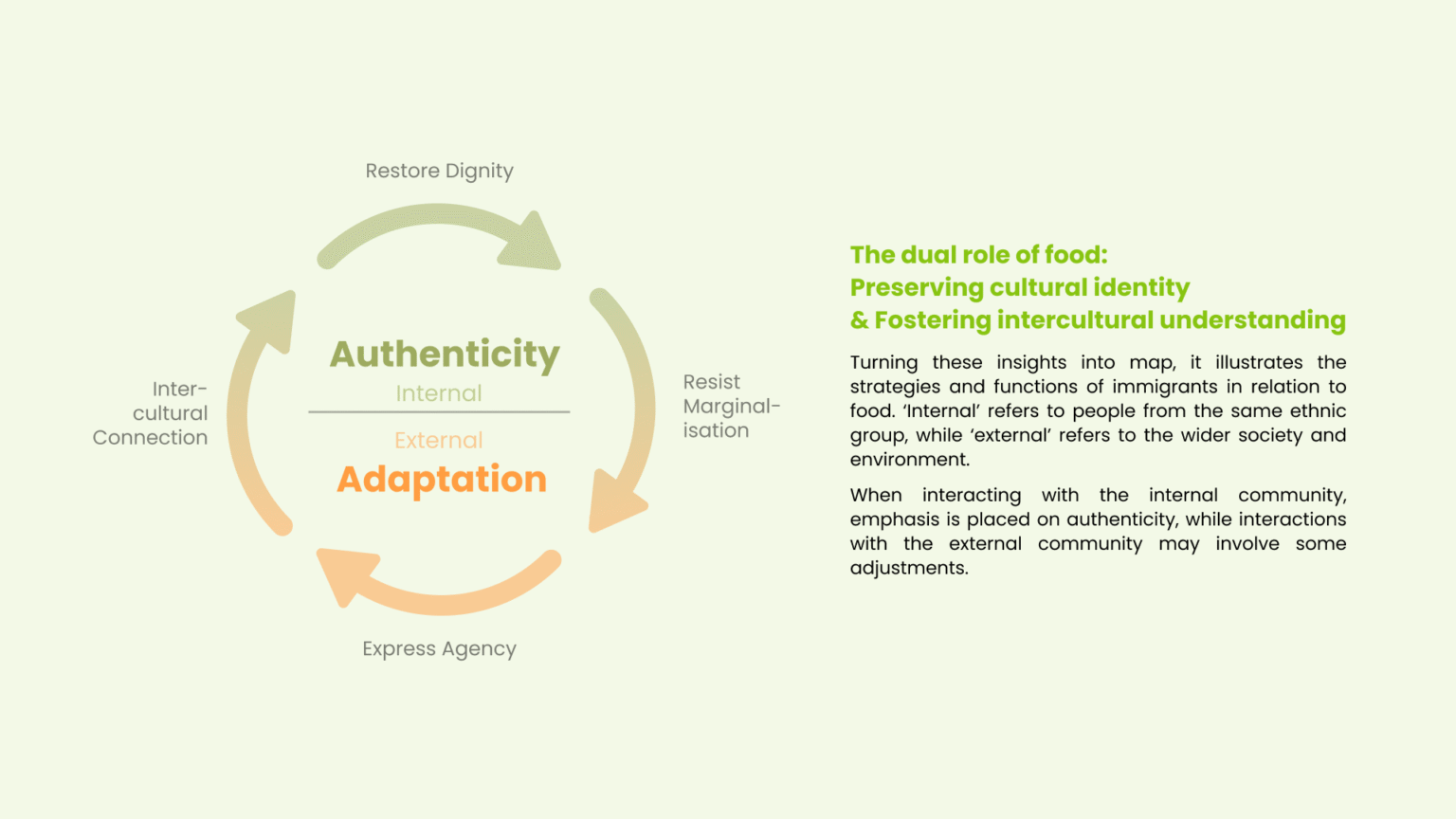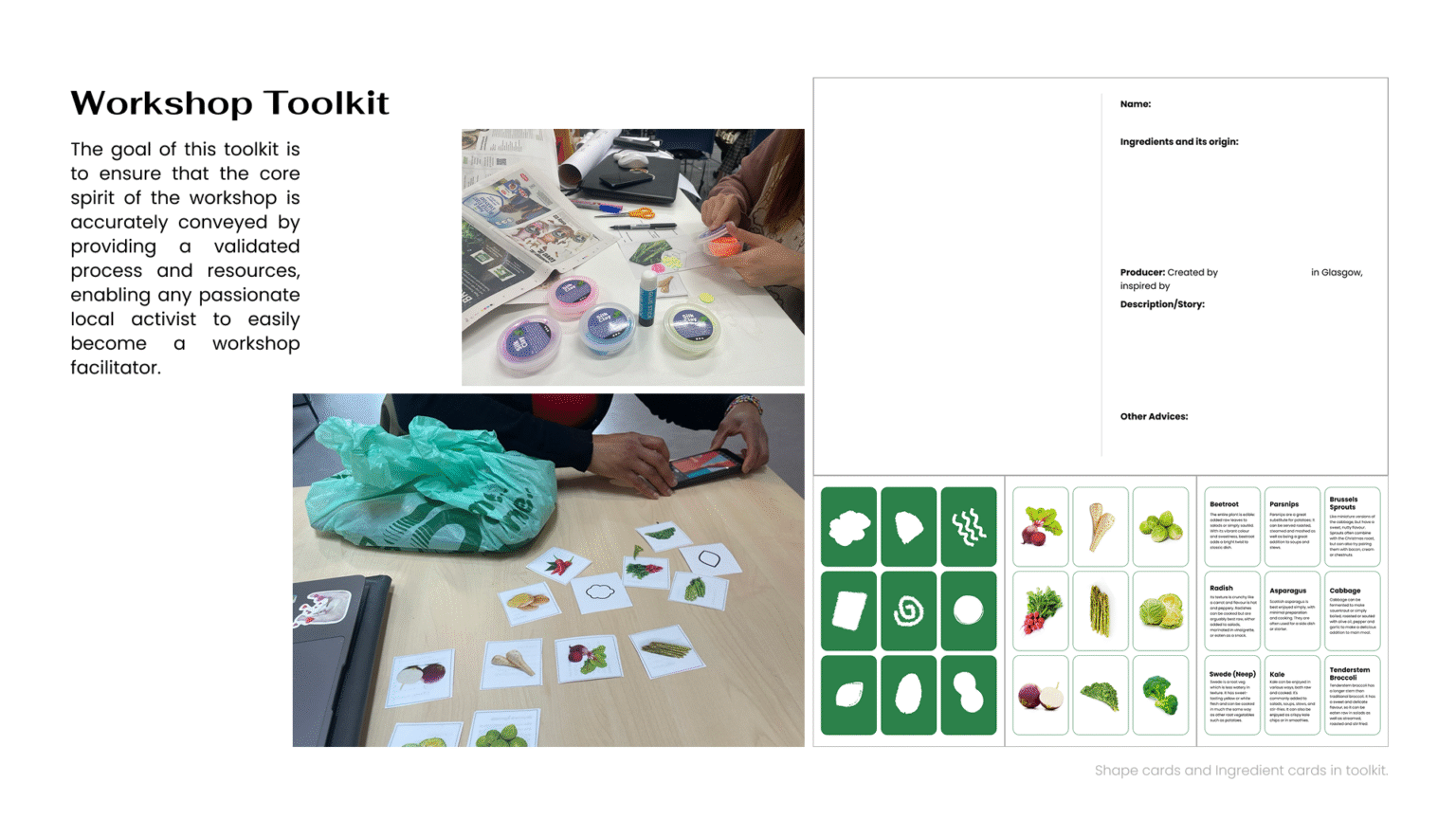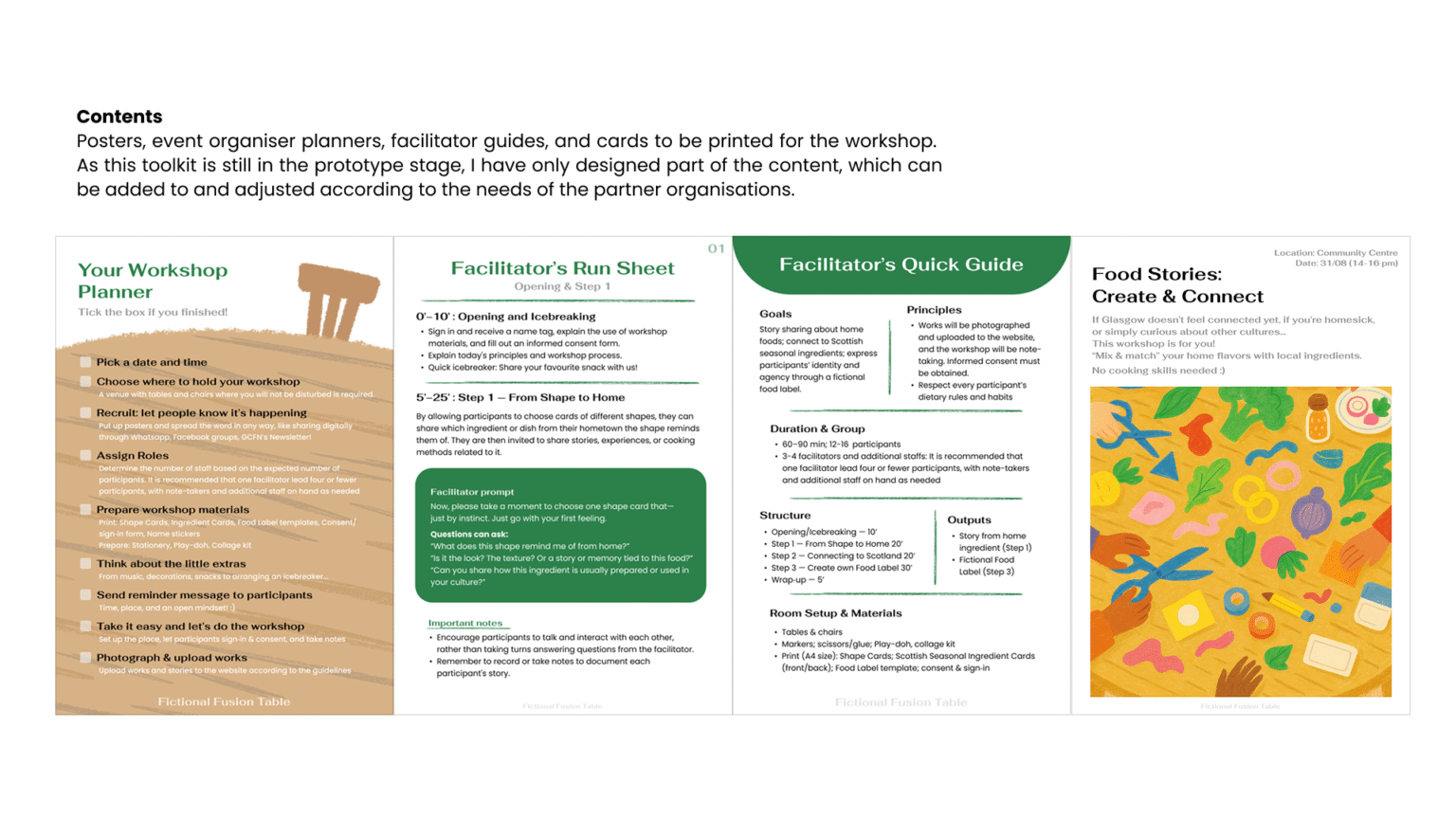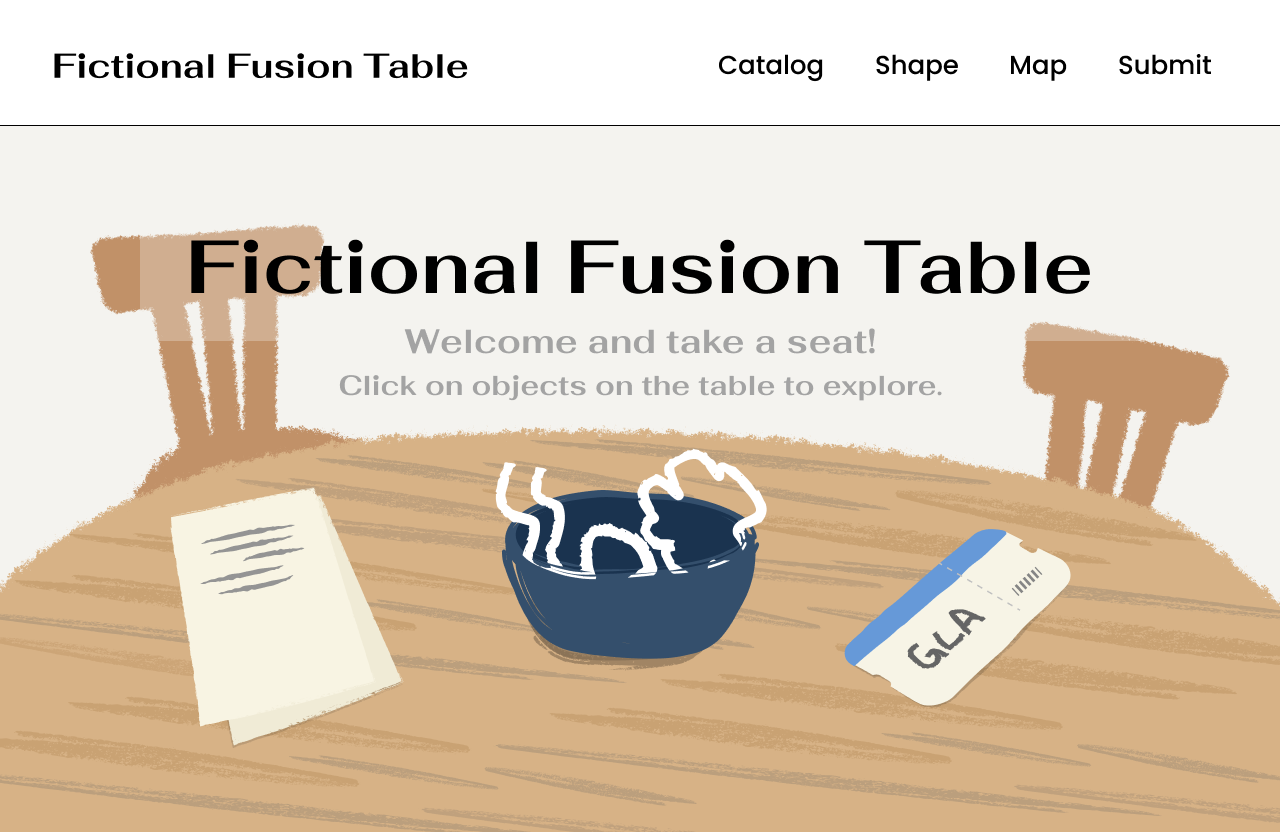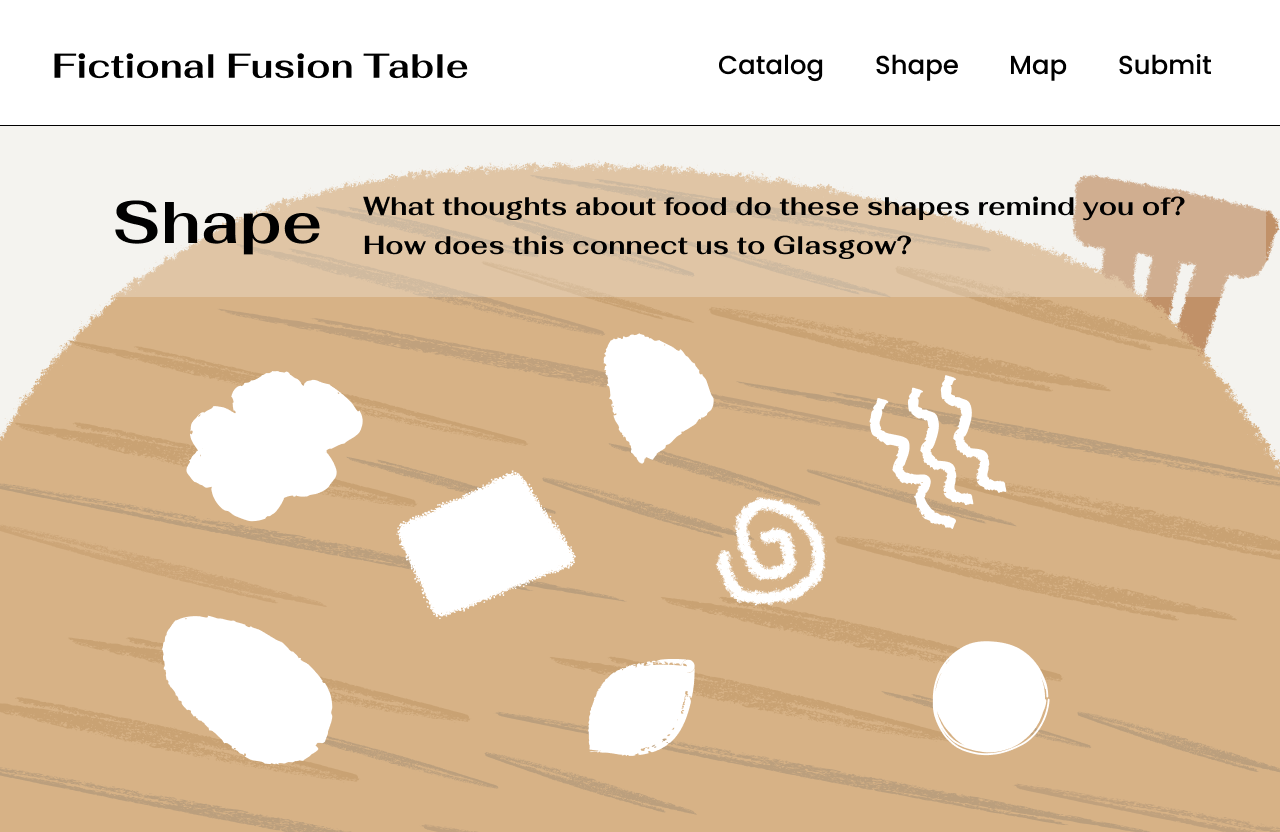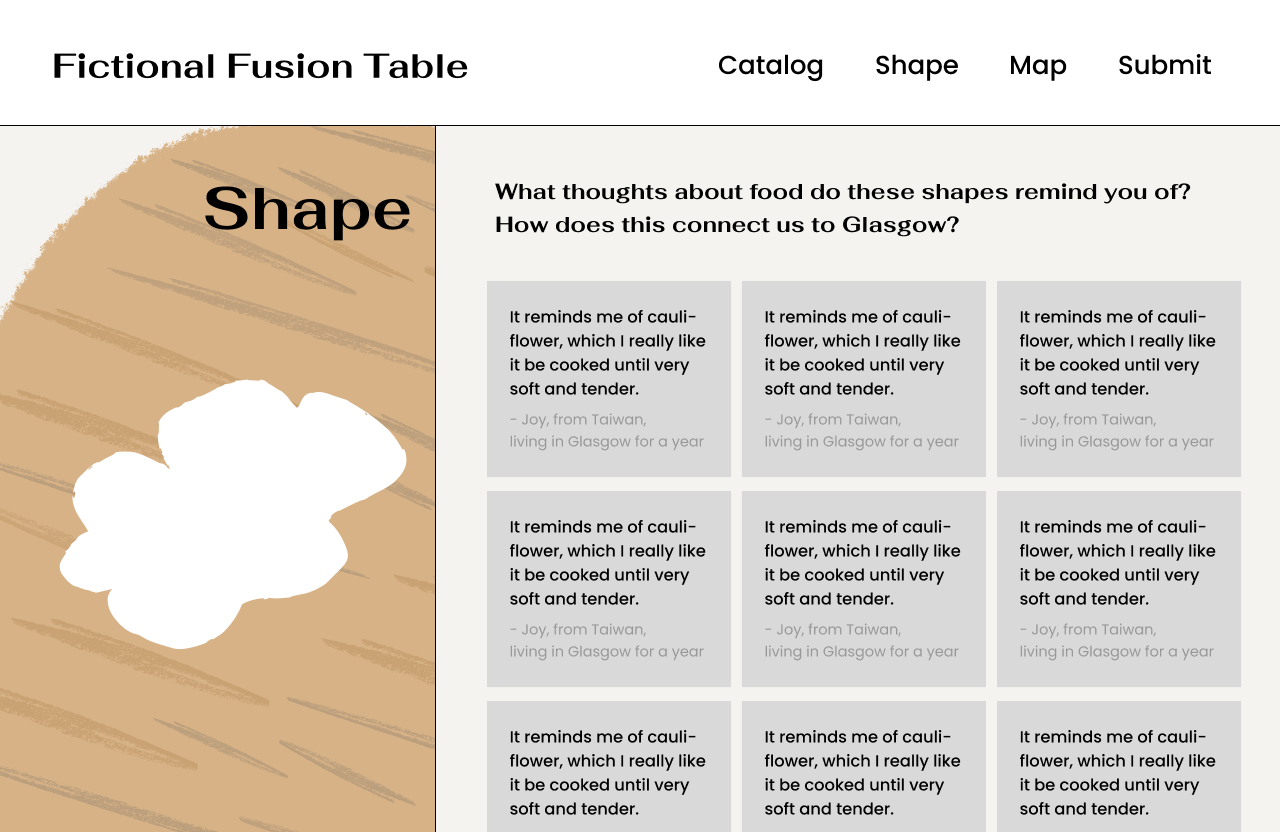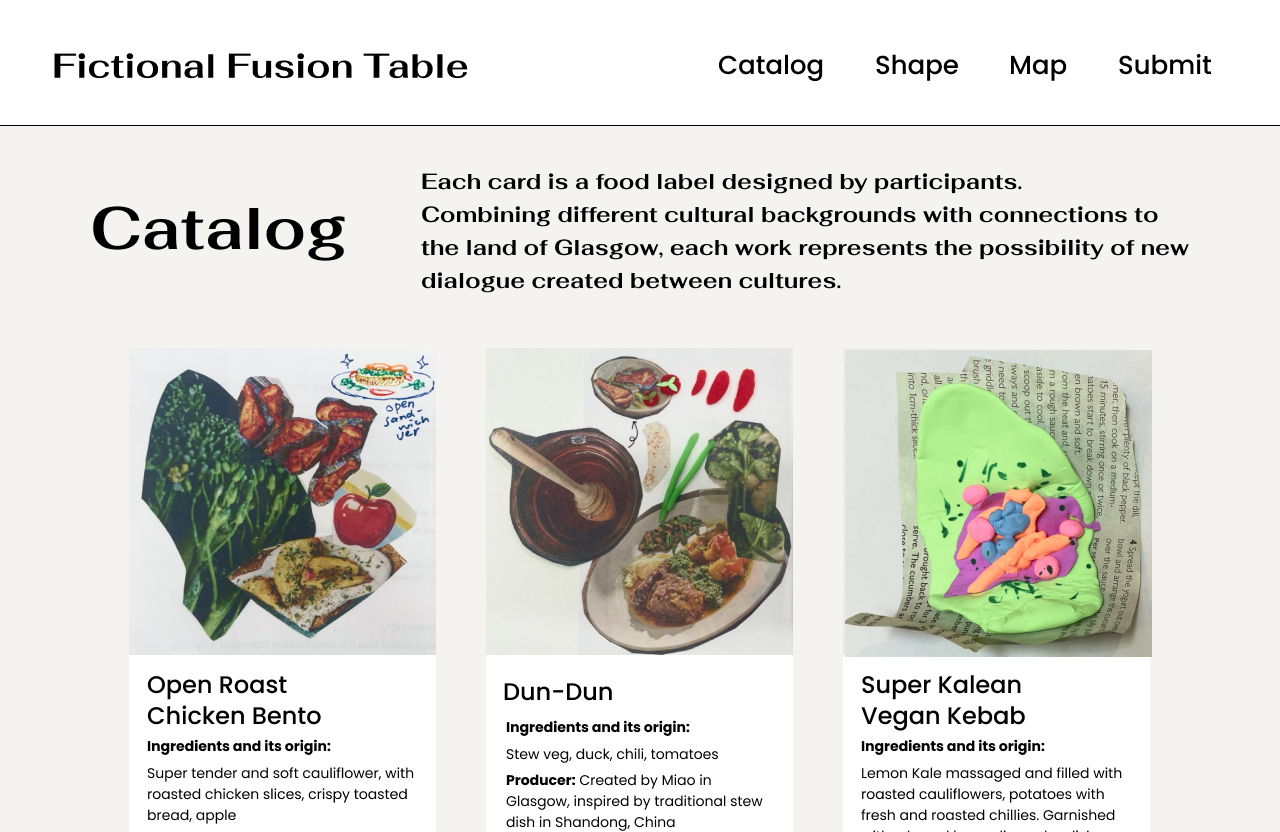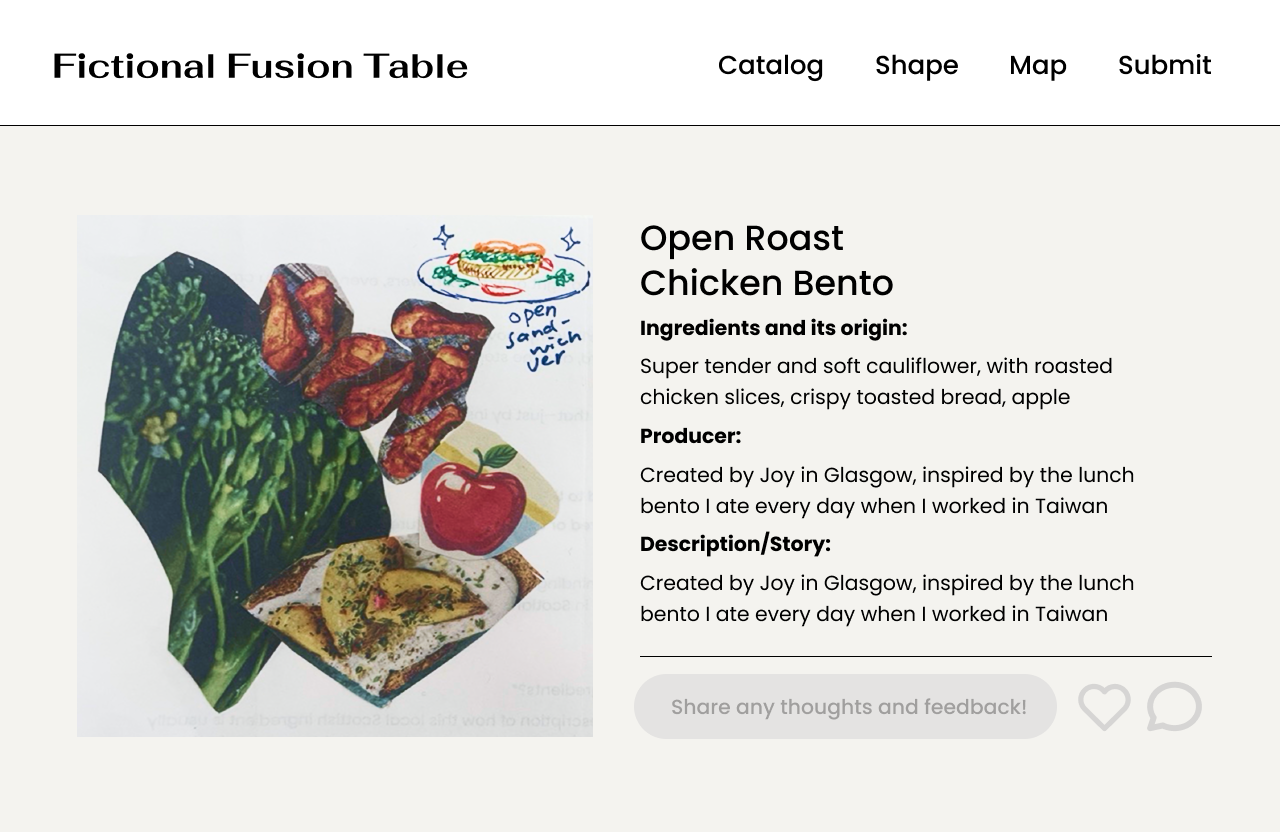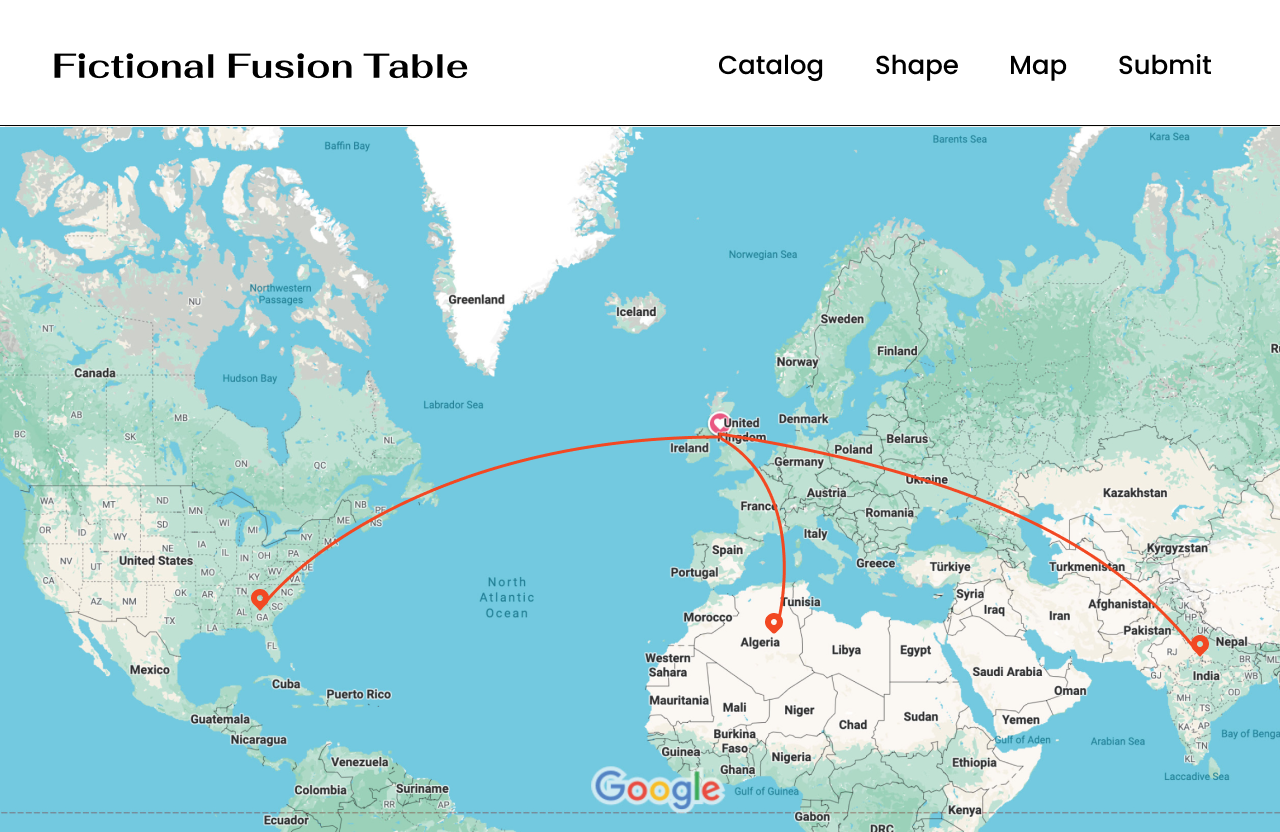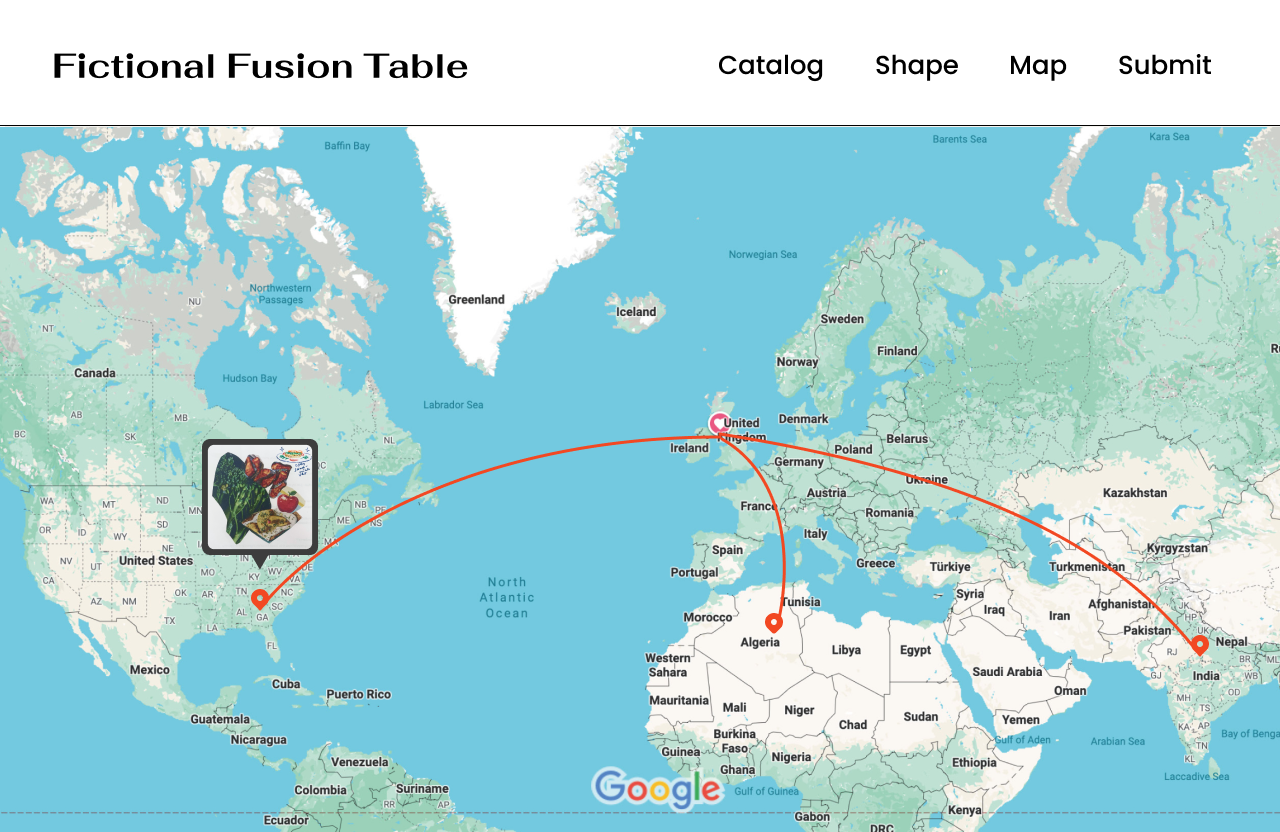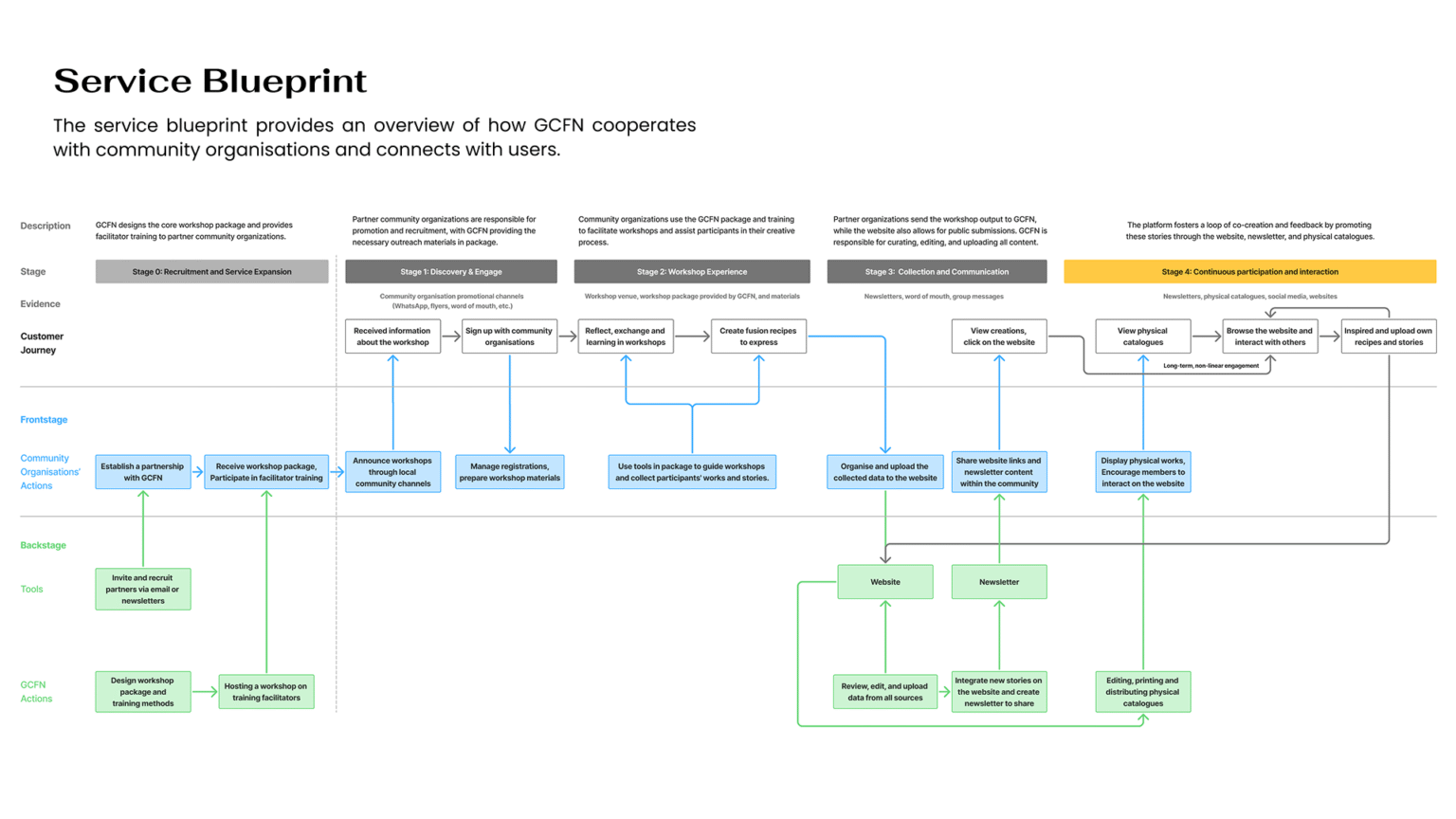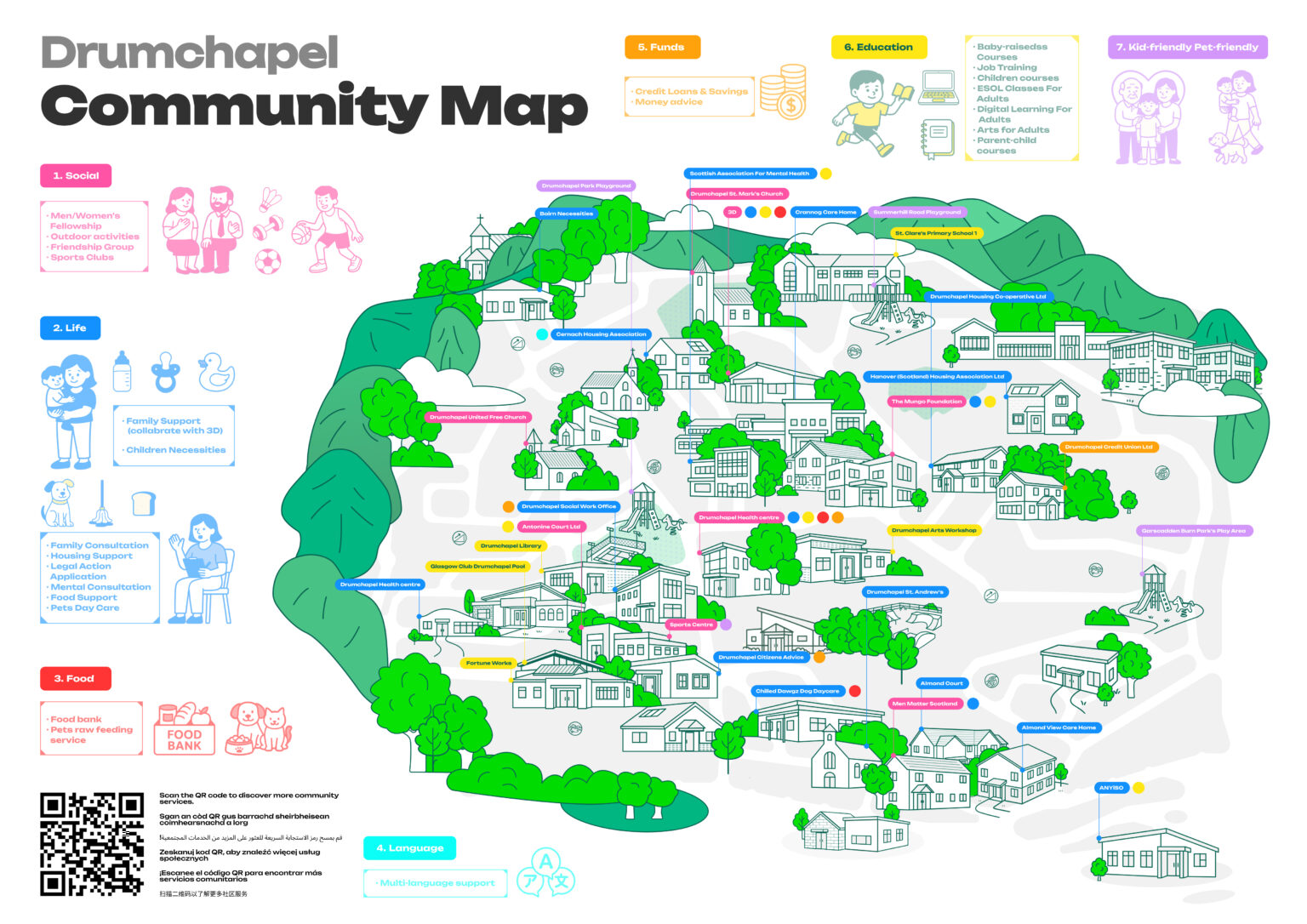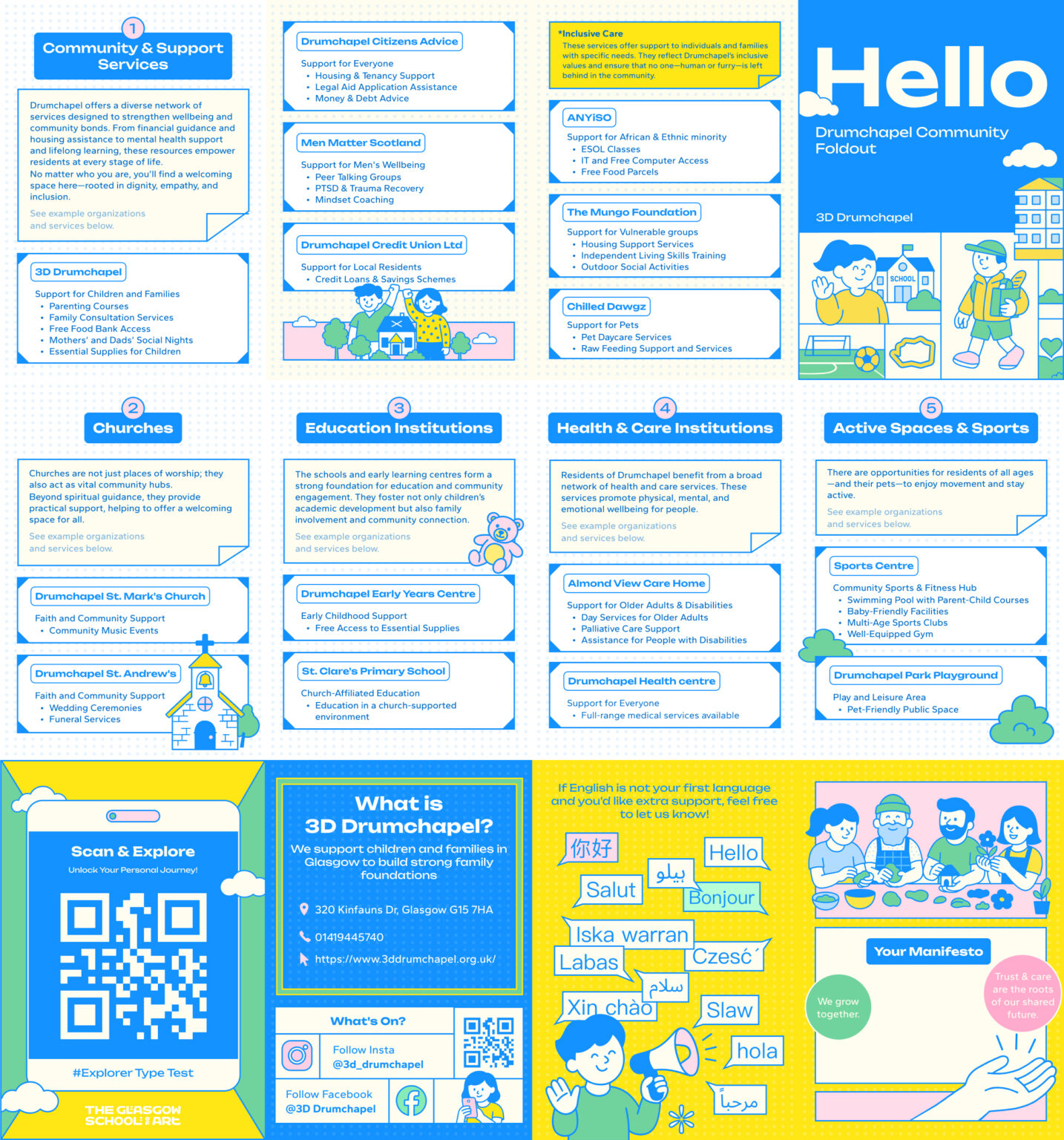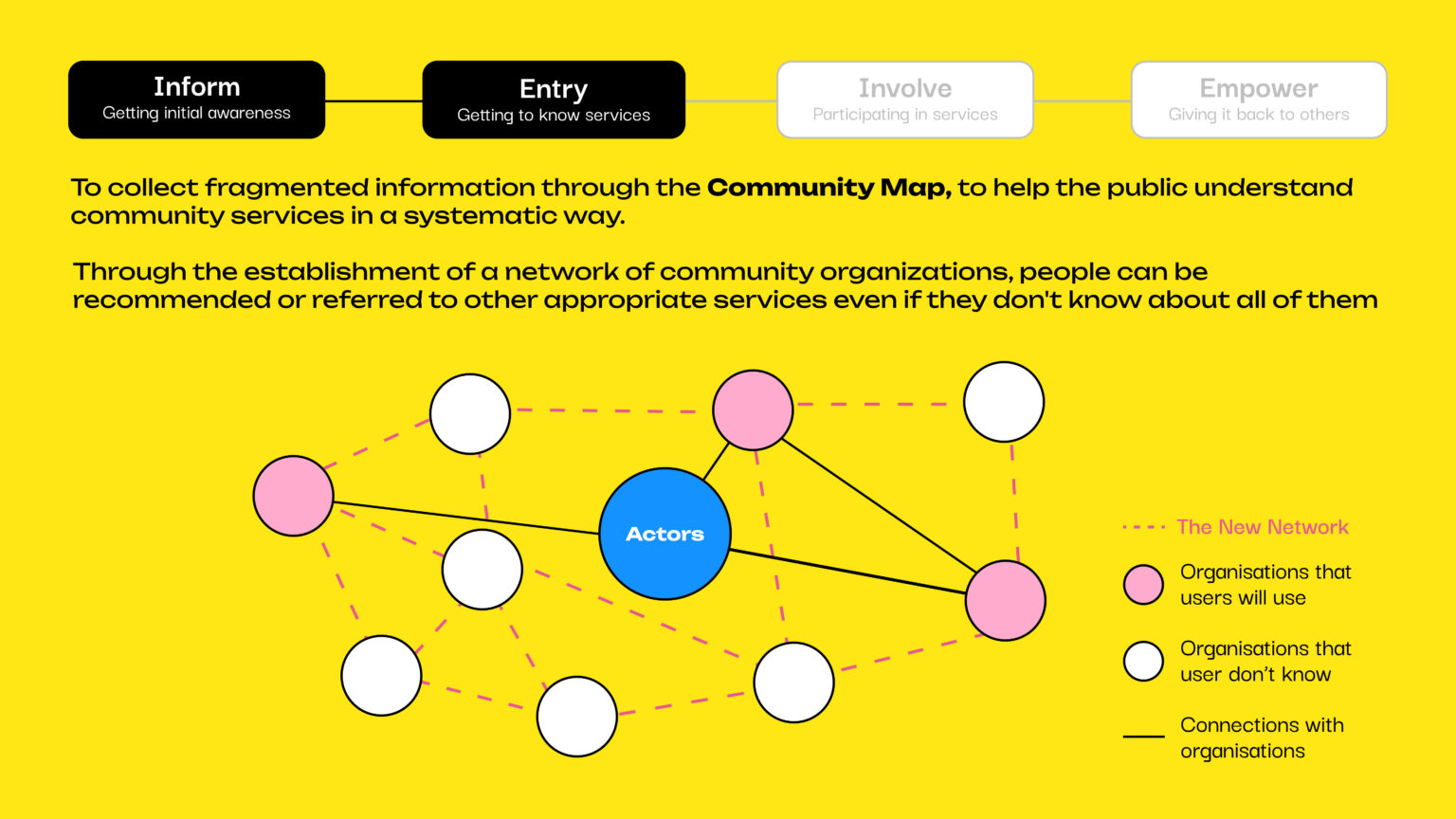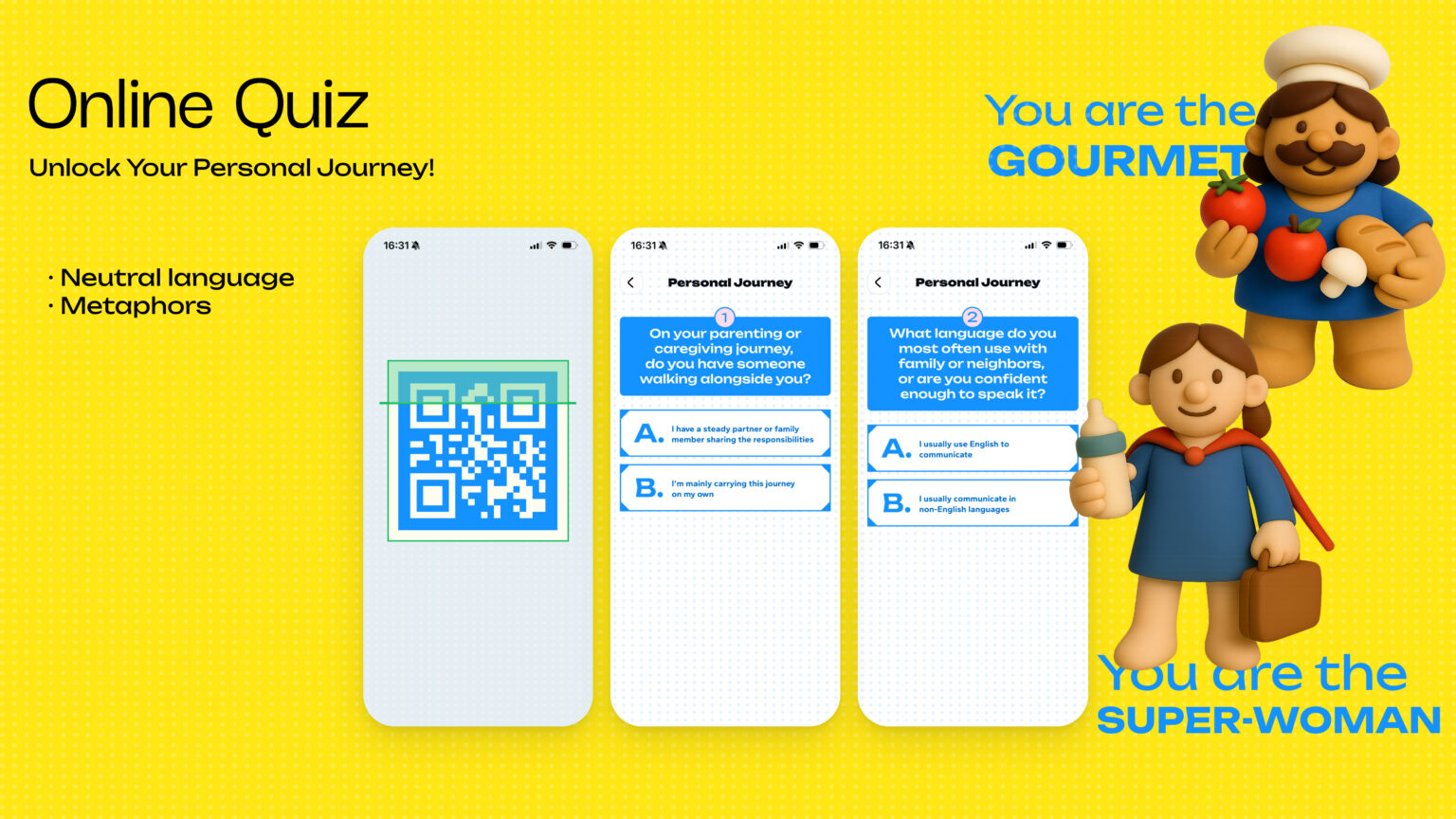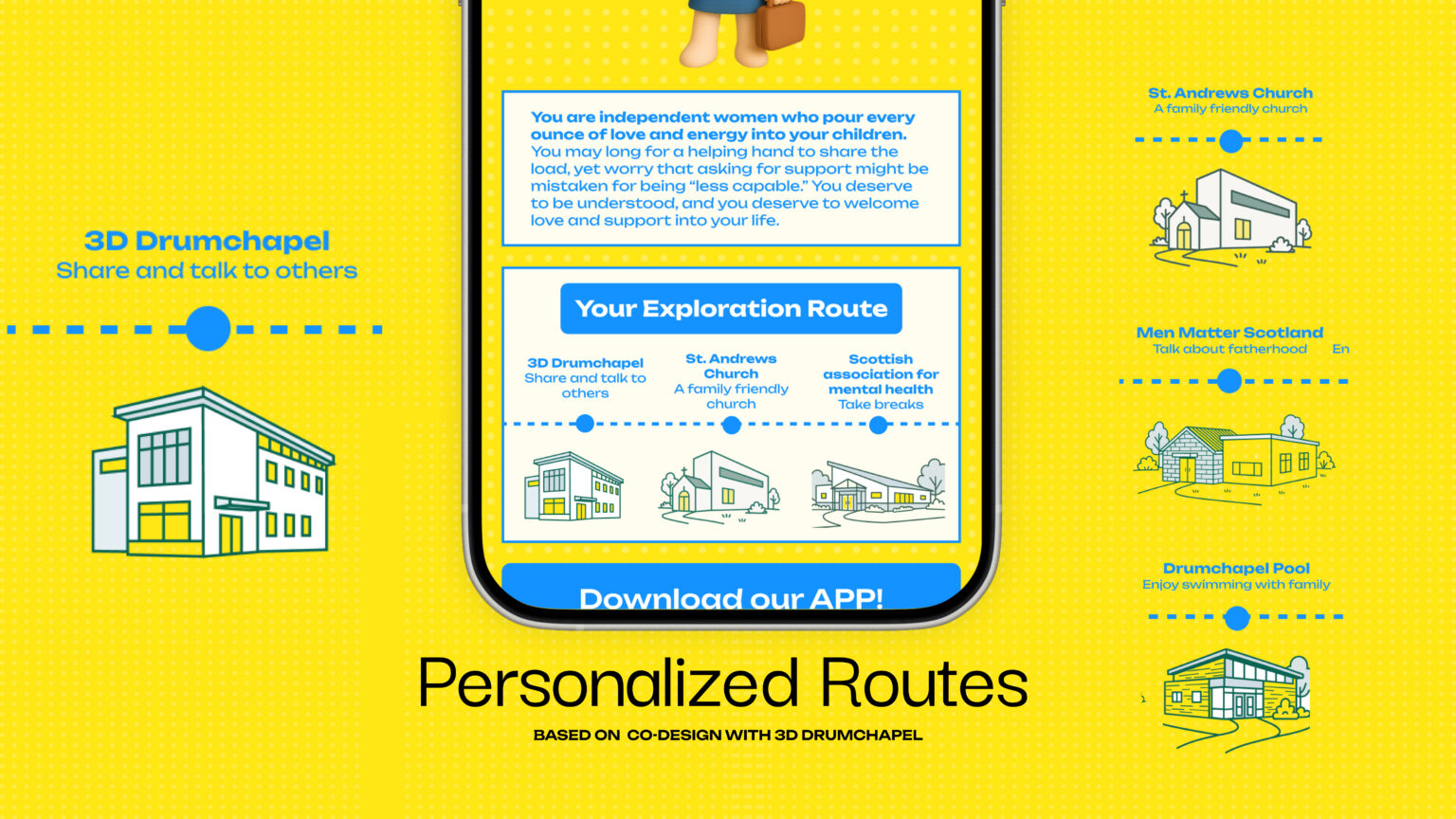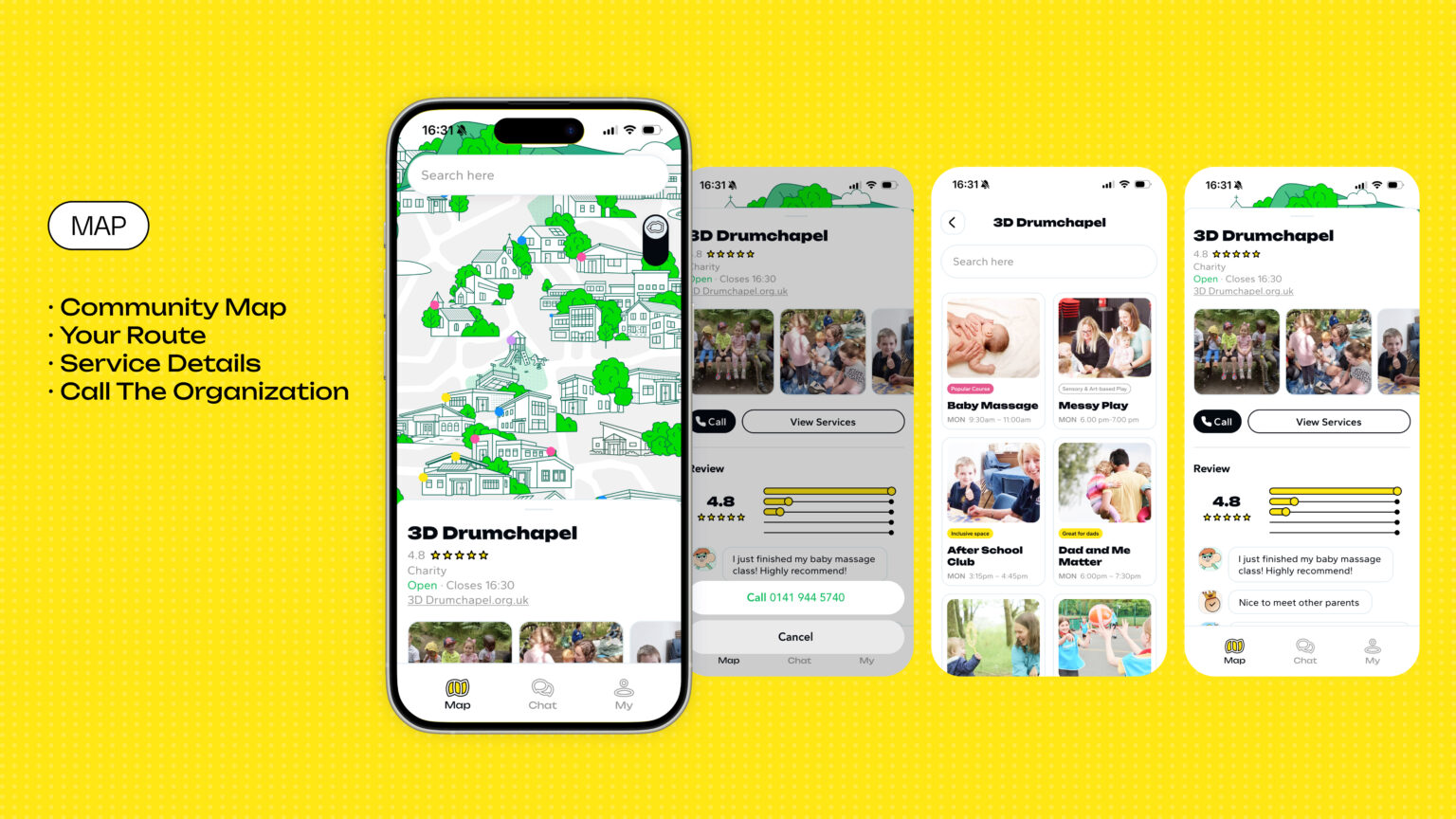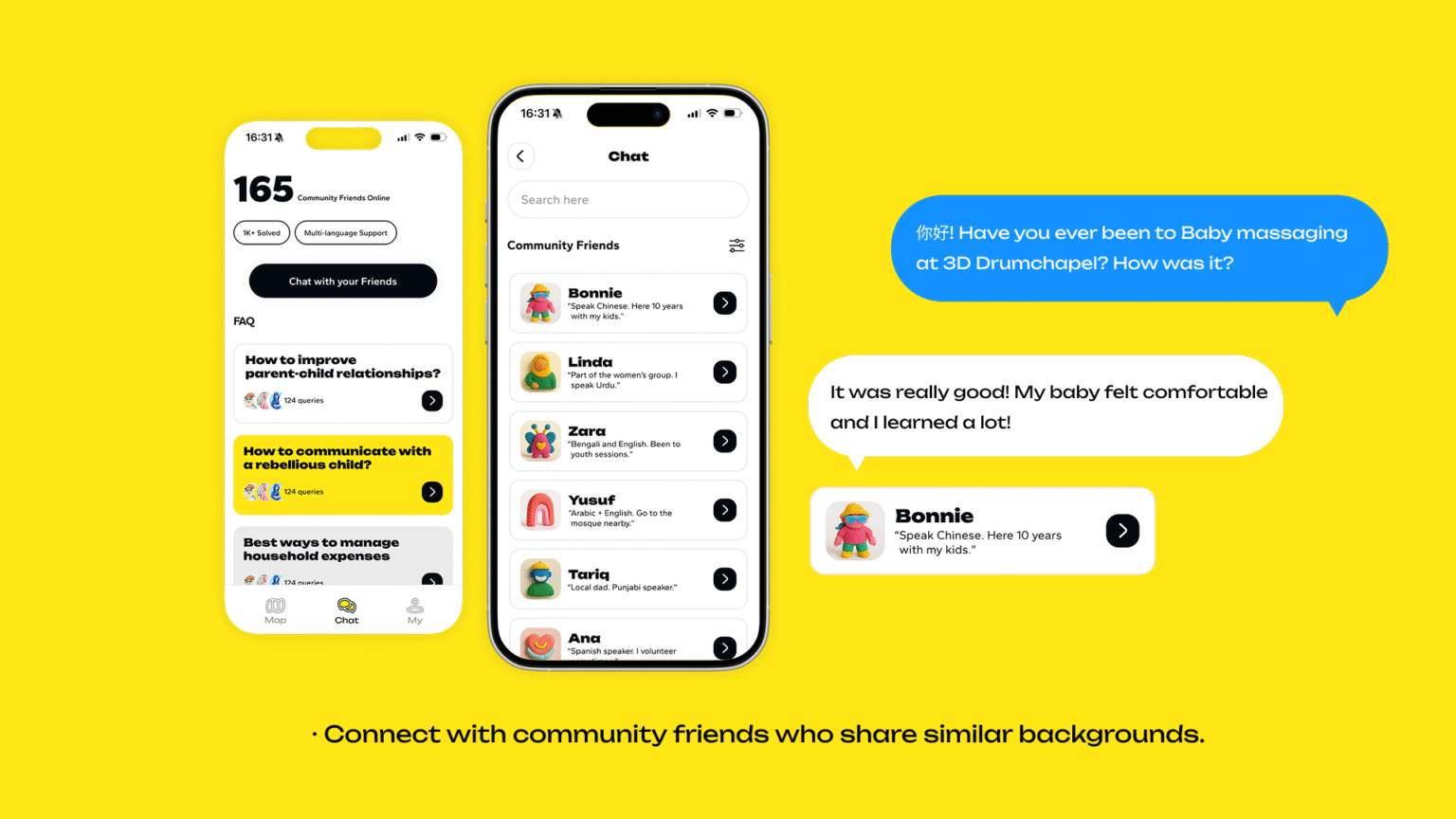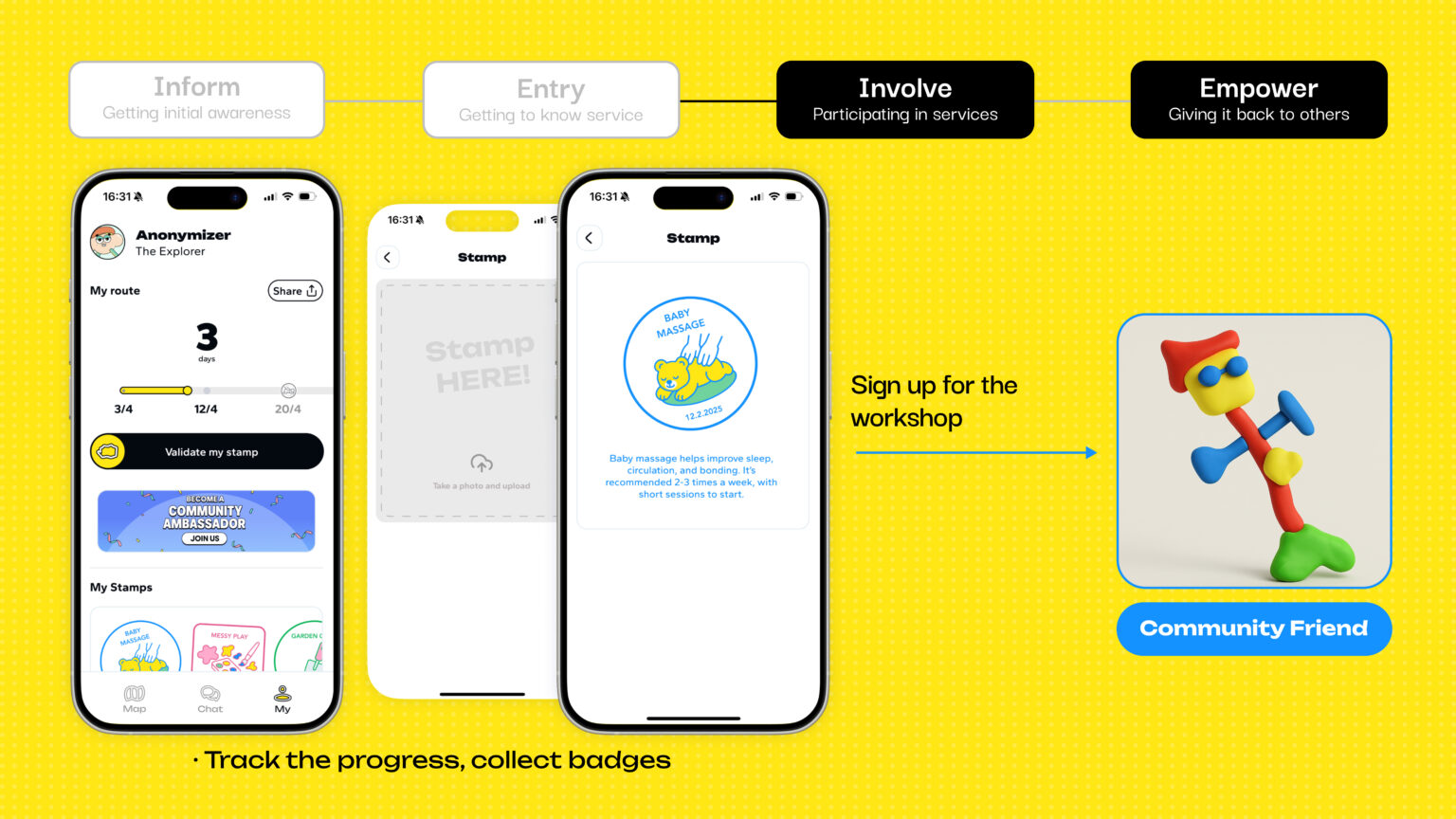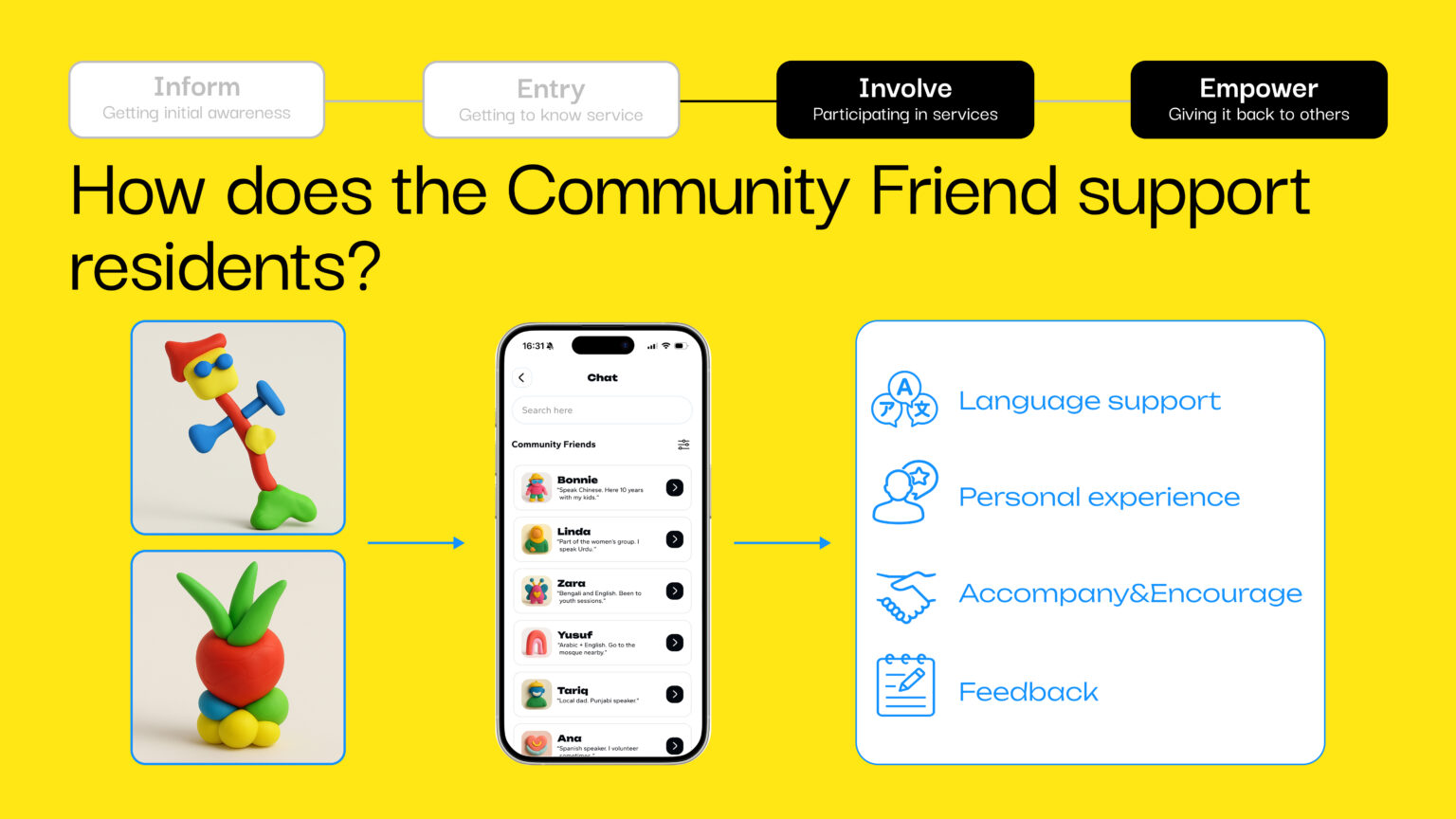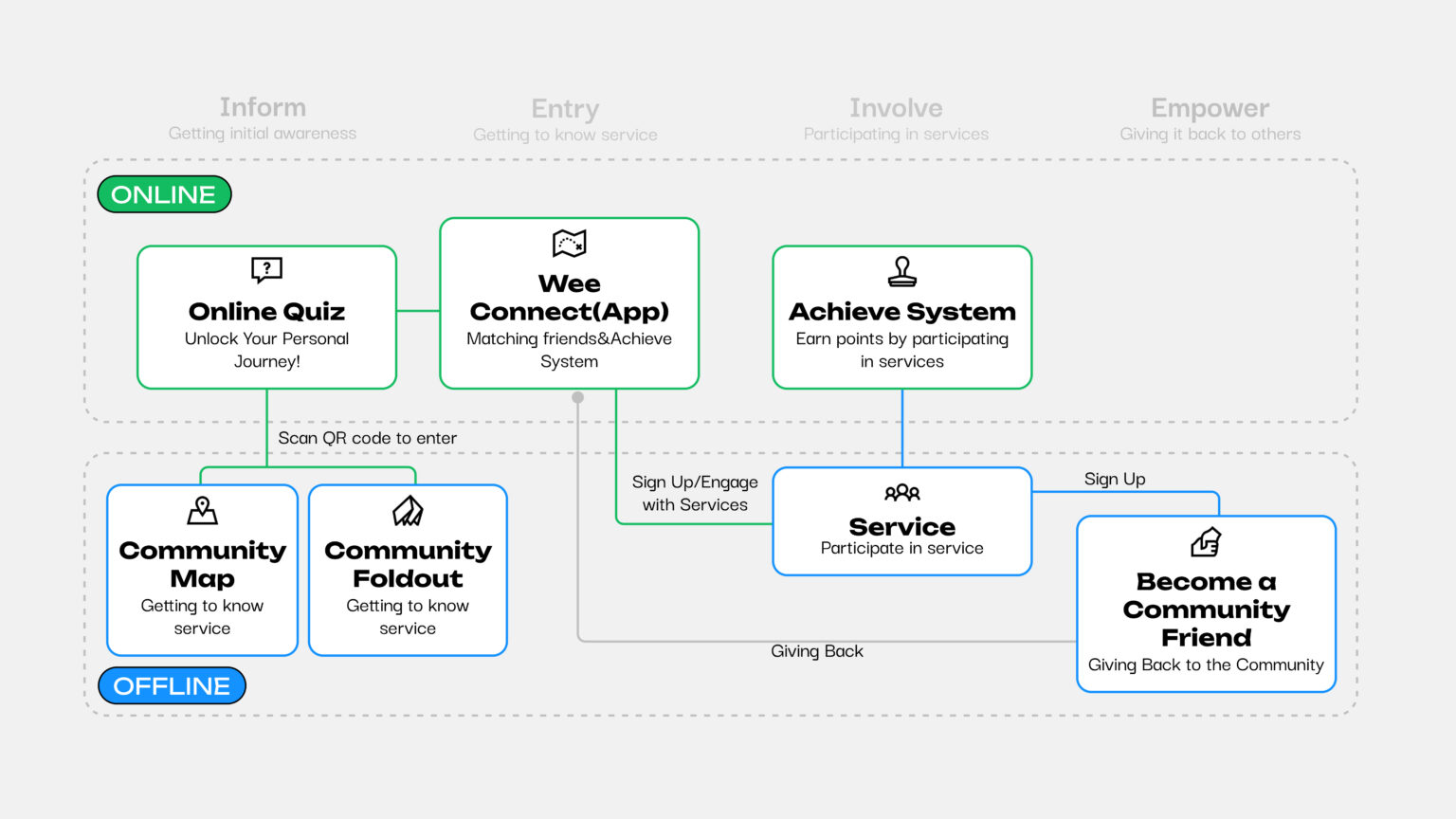MDes Design Innovation & Service Design School of Innovation & Technology
Jia-Yi (Joy) Lin
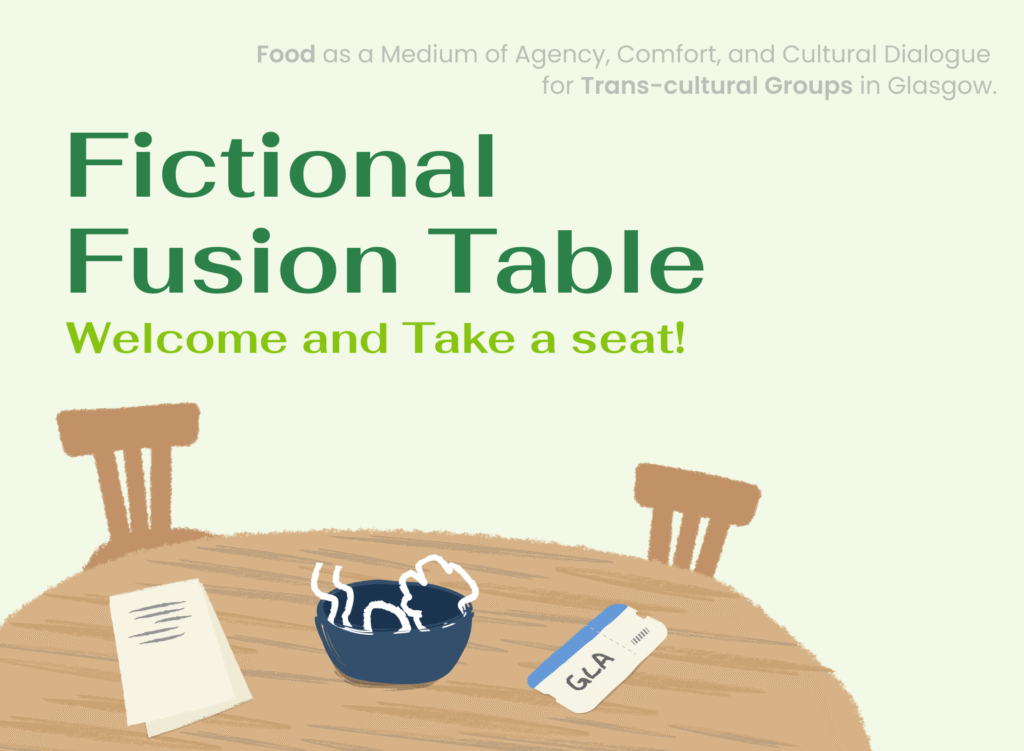
A service designer driven by a commitment to social justice and innovation. My background in diplomacy informs a unique approach to my work, particularly in co-designing public services.
I specialise in mapping, co-design facilitation, and translating complex insights into tangible, testable prototypes. My projects consistently explore how design can uphold dignity in everyday practices, with the goal of co-creating systems that make people feel seen, valued, and empowered.

Fictional Fusion Table
“In Homo sapiens, food not only nourishes but also signifies.”
— Claude Fischler, Food, Self and Identity (1988)
Set in Glasgow’s culturally diverse context, Fictional Fusion Table is a service and research project that addresses the emotional and cultural challenges faced by non-Western migrants due to structural racism. These challenges include marginalisation, cultural loss, and identity fragmentation. Built on the foundations of critical migration theory and design fiction, this project asks:
How might food serve as a medium through which new trans-cultural groups in Glasgow can navigate cultural adaptation, express agency, and build bridges between their cultural roots and their new environment?
Food as a Medium: Its Role and Potential
This project uses food as a medium for support, cultural expression, and social connection. Food holds something deeply human: it connects us to who we are, where we come from, and the people who raised us. From the perspective of critical migration theory, food practices can both distinguish groups and become powerful tools for resisting marginalisation and promoting cultural exchange.
Using participatory and narrative-led methods, we invite newcomers to share stories, memories, and coping strategies through the lens of food. By sharing these rooted memories, participants reclaim agency and reflect on what it means to belong.
Theoretical Framework & Design Approach
This project combines critical migration theory with design fiction to create a safe and inspiring co-creation space when addressing sensitive social issues.
Design fiction provides a crucial resource for participatory design, particularly through collaborative fiction creation. This method transforms passive recipients into active co-creators, enabling them to engage more deeply and envision the futures they desire or fear. This collaborative process is, in itself, a practice of participatory design. It provides participants with “dream material” and serves as a powerful framework for challenging the status quo and exploring broader issues like social change.
Service Outputs & Impact
Fictional Fusion Table is a hybrid service that combines offline workshops with an online community platform. Its core output is a food label imbued with the spirit of ‘Design Fiction.’ Participants create their own fictional fusion foods by linking ingredients from their hometowns with local Scottish ingredients. This process requires no cooking skills; instead, it uses creation, expression, and fiction to help newcomers recognize their capacity for proactive adaptation.
These stories and creations are then uploaded to a website, extending the energy of the offline workshops online. This not only inspires those who cannot attend in person but also transforms the platform into a sustainable, community-created archive of culinary landscapes that interacts with the local Glasgow society.
This project is not a one-way service but a two-way bridge. It creates mutual value for both newcomers and the local community. The service transforms ‘food’ from a mere culinary medium into a tool for empowerment and cultural expression, thereby establishing connections between different cultures. It enables newcomers to connect with their new society through their work, while the local community gains a more complete view of the cross-cultural community through ingredients and stories, laying the foundation for a more inclusive, listening, and co-creative community.
Based on a service ecosystem map, this project assumes that a city-level coordinating organization would lead the service provision. We use the Glasgow Community Food Network (GCFN) as an ideal assumed partner to explore how everyday food practices can open a space for dignity, dialogue, and intercultural connection. By developing toolkits and training facilitators, the service can be expanded to other collaborating community organizations, forming a network with a wider impact.
Wee Connect
Our contextual partner for this project is 3D Drumchapel, a local community organisation in Glasgow dedicated to addressing family issues in the Drumchapel area. Starting from the key question, how to attract families who are reluctant to actively seek help to participate in 3D Drumchapel’s services, we developed strategies that move from lowering entry barriers to building a sense of security. The ultimate goal is to create a community network where all members can participate, contribute, and collectively build a culture of mutual support.

